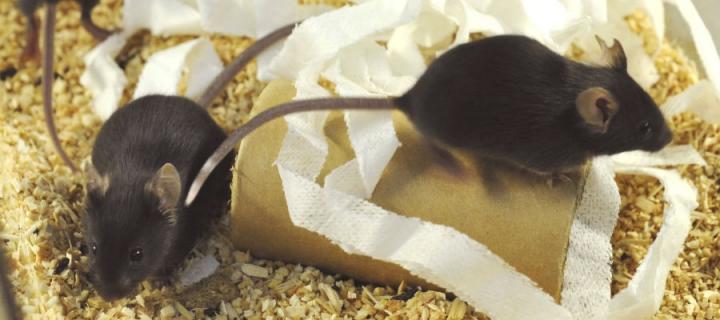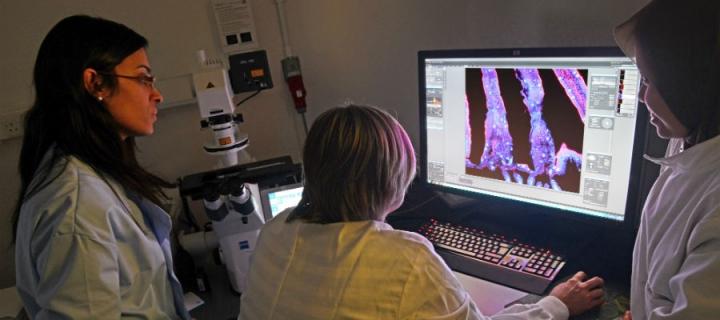We are a Leader in Openness
We have been named a Leader in Openness by Understanding Animal Research. Find out what this means:
Sector-leading award for animal research openness
Animal Research - an introduction
Animal research plays a vital role in understanding health and disease, which is crucial for developing new therapies for people and animals.
We use alternatives where possible but, at present, some research questions can only be answered using animals. Where animals cannot be replaced, we try to reduce the number we use to get a scientifically valid answer and refine the techniques to minimise the impact on the animals.
More than 95 per cent of the animals we use in research are rodents and fish. We also use a number of farm animals, including chickens, sheep, cows and pigs, and a small number of wild animals.
All of our animal research is carried out in accordance with UK law, under strict Home Office regulations.
Why we use animals in research, alternatives to using animals and how many animals are used.

We provide a number of opportunities for members of the public to find out more about our research involving animals.





